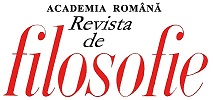Actualitatea teoriei critice și implicațiile sale socioculturale
The Actuality of Critical Theory and Its Sociocultural Implications
Author(s): Eva Ivan-HaintzSubject(s): Social Philosophy
Published by: Editura Academiei Române
Keywords: Frankfurt School; Max Horkheimer; critical theory; culture industry;
Summary/Abstract: The aim of this paper is to investigate the actuality of the philosophical premises of the “critical theory”, as they were first envisioned by Max Horkheimer in his programmatic article “Traditional and Critical Theory” (1937) and subsequently developed within the Institute of Social Research, which came to be known as the “Frankfurt School”. Kritische Theorie is centred on a number of key points: the role of critical thinking inside a weary society that is seen as a result of the abandonment of freedom in the hands of a supposedly ideal doctrine; the fear of truth of those who conform to the totalitarian rules; the way in which financial crisis and the suppression of free time hinder critical thinking; and the synergistic effect that aesthetic attitude and critical thinking have on contemplating the products of Kulturindustrie. Following these key points, we will focus on what the theory challenges within sociocultural segments in order to assess its relevance in today’s society.
Journal: Revista de filosofie
- Issue Year: LXX/2023
- Issue No: 3
- Page Range: 287-297
- Page Count: 11
- Language: Romanian

